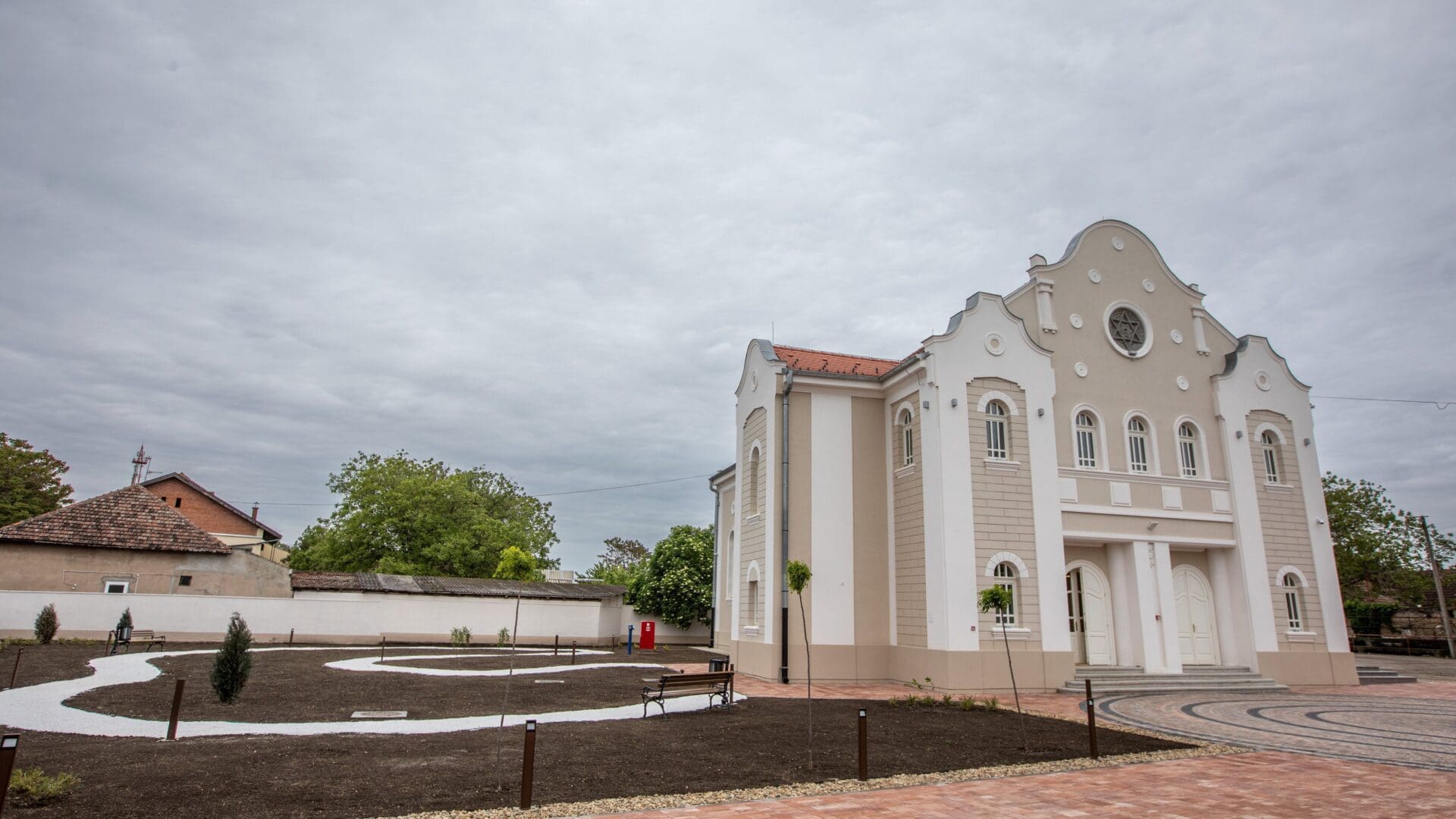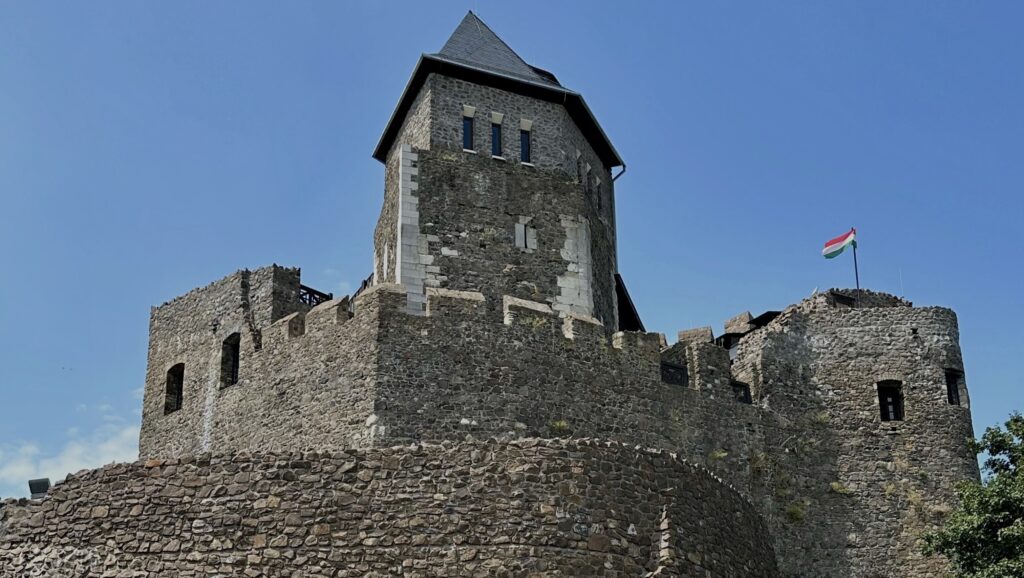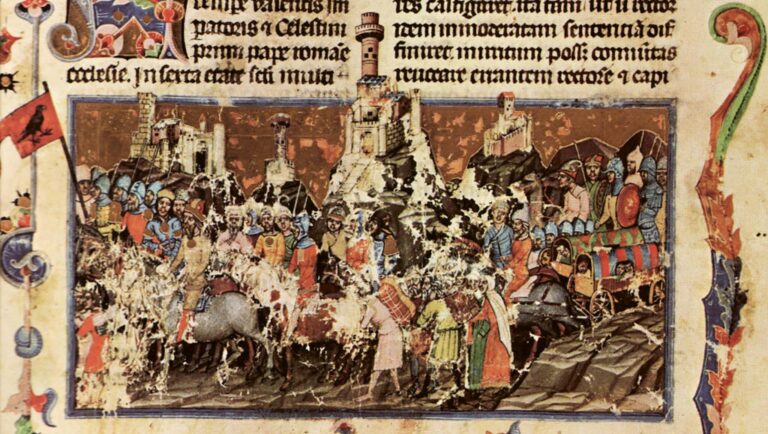The Hungarian government is committed to preserving and restoring Jewish cultural heritage not only in Hungary, but throughout the Carpathian Basin, in all the places where Hungarian-Jewish coexistence has taken place over the past centuries, Hungarian State Secretary for National Policy Árpád János Potápi emphasised at the opening ceremony of the renovated synagogue in Senta.
On 12 May, the so-called Small Synagogue in Senta (Zenta), Vojvodina in Serbia was inaugurated after renovation largely financed by the Hungarian state. The facility, known as ‘Partizan’ by the locals, was previously used for sports purposes, has been restored to its original beauty and will host cultural events and community programmes. The renovation of the 400-square-metre building started last April with a grant of 220 million forints (about 335,000 USD) coming from the Hungarian Government and the local municipality.
The synagogue was built in 1928–29 and served the local Orthodox, Hasidic community. The facility was called the ‘small Synagogue’ as the town also had a larger synagogue, built in 1873 for the Neolog community, but demolished in 1957. Until 1944, around 1500-2000 Jews lived in Zenta, but after the deportations during the Holocaust, only a few hundred returned. The last rabbi of the ‘small synagogue’ from 1939 until the community’s deportation to Auschwitz in 1944 was Moshe Teitelbaum, who survived the Holocaust and eventually moved to the United States, where he became the leader of the Satmar Hasidic community in 1980. He died in 2006, aged 91.
The synagogue served the small local Jewish community until the 1950s, after which it became the property of the municipality and ceased to serve a sacred function. The building was used as a sports centre, among other things, and today, especially after its renovation, has a primarily cultural function but also offers the possibility of being used for religious purposes. The building will house an art gallery and a permanent exhibition on local Jewish history as well.

‘This synagogue, this prayer room, this is exactly the place of meeting. In the future, it will be the venue for cultural events where people can meet,’ President of the Federation of Jewish Communities in Serbia Róbert Szabados stated at the opening ceremony of the renovated Synagogue.
‘When we talk about the Jewish people, we are not only talking about Jews, we are not only talking about Israelites, we are also talking about Hungarians,
because the history of the Jewish people has been intertwined and almost conflated with that of Hungarians since the early centuries,’
Árpád János Potápi, the state secretary for National Policy at the Prime Minister’s Office underscored at the opening event. The state secretary reminded that the history of Hungary would have been unthinkable without the Jews in the early Middle Ages, and then later, from the 18th century until the mid-20th century. Jewish people ‘not only sacrificed their lives and blood for Hungary in the wars of the 19th and 20th centuries, but also made a significant contribution to Hungary’s economic and cultural development.’
‘If we were to extract all the treasures from Hungarian cultural history that we can thank the Hungarian Jews for, Hungarian culture would be visibly much lesser,’ the state secretary underlined.
He also stressed that the Hungarian government is doing its utmost to curb anti-Semitism, and reminded that the administration has a policy of zero tolerance towards anti-Semitism. Potápi noted that the government is working on ensuring that future generations know as much as possible not only about the history and culture of Jews, but also about the Holocaust, ‘because what happened in 1944 did not only happen to the Jews, but also to us Hungarians and Serbs, and all the peoples living together’ in the Carpathian Basin. Árpád János Potápi also pointed out that the tragedy was ordered by the Germans, but carried out by the Hungarian administration, for which the Hungarians have apologised several times over the last thirty years, and the Jews have accepted the apology.
Therefore, the Hungarian Government also wants to cherish and restore Jewish cultural heritage,
not only in Hungary, but throughout the Carpathian Basin. He recalled that the synagogue in Subotica (Szabadka) was also renovated recently.
The state secretary declared that for the Hungarian government, ‘everyone who professes to be Hungarian, who feels Hungarian, is important, and we will not give up on them’. He added that the Hungarian government also considers it important to support nationalities living together with Hungarians and those communities that are part of the Hungarian nation’s culture.
The Hungarian government has had a zero-tolerance policy towards anti-Semitism since 2010 and has revised hate speech legislation, while making teaching about the Holocaust part of the curriculum in schools. In Hungary there is no political-social interference in nor serious public debate about the practice of Jewish traditions such as ‘brit mila’ (circumcision) or ‘shechita’ (kosher slaughter), which have been the subject of intense disputes in other European countries in recent years. The government allocates significant financial resources to Hungarian Jewish communities for religious and cultural projects such as synagogue renovations.
Hungary is home to the third largest Jewish community in Europe and Jewish culture and Jewish people are experiencing a renaissance in Hungary today. A comprehensive study conducted by the European Jewish Association (EJA) in cooperation with the British Institute of Jewish Policy Research found that after Denmark, Hungary is considered the safest place for Jews among the twelve European countries that were observed. The survey also revealed that Hungarian Jews have been the least affected by any form of antisemitism among the measured countries over recent years.
Related articles:








